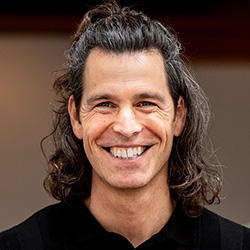

NVC Resources on Connection
-
Trainer Tip: All people long for understanding. It is such an easy thing to give, yet rarely do we see its importance in creating peace of mind.
-
Turn feedback into a path for learning and growth by understanding what makes it challenging.
-
Build thriving communities through dialogue, a collaborative, heart-opening path to shared purpose.
-
Rediscover ease and joy in love by transforming how you perceive, receive and embody connection.
-
Watch Jim and Jori Manske in this video as they share three key learnings about collaborating effectively.
-
Join Dian Killian and discover the power of imagery and metaphor in deepening your empathy practice. This segment from her 6 session course explores how visualizing sensations, emotions, and needs through metaphorical language can enhance the connection during empathy guessing, particularly in somatic-based approaches.
-
Oren J. Sofer offers an NVC approach to navigating tough moments—balancing honest self-expression with deep listening. Discover how centering yourself, naming your intentions, and hearing the other person first can create the understanding needed for true connection.
-
Oren Jay Sofer shares how to stay present and grounded during difficult conversations, especially when we feel judged or criticized. He describes how awareness of bodily sensations—such as tension, trembling, or the urge to react—can help us channel our energy in a constructive way. Oren highlights the shift from focusing on others’ judgments to identifying our own feelings and needs, which restores clarity and empowerment. By learning these skills, we can transform reactive moments into opportunities for understanding, connection, and self-awareness.
-
How do you solve a conflict? By not trying to solve it! Yoram suggests building your conflict resolution muscles by practicing connecting to the needs behind the conflict instead. Check out this excerpt from Session 1 of his 2021 course, Connecting in Conflict and the Art of Navigating Dialogue. Listen.
-
Trainer Tip: Never compromise; sharing resentment 50/50 is not a sustainable solution.
Quick Links

Stay in Touch!
We value your privacy, won't share your email address and you can easily unsubscribe any time.









